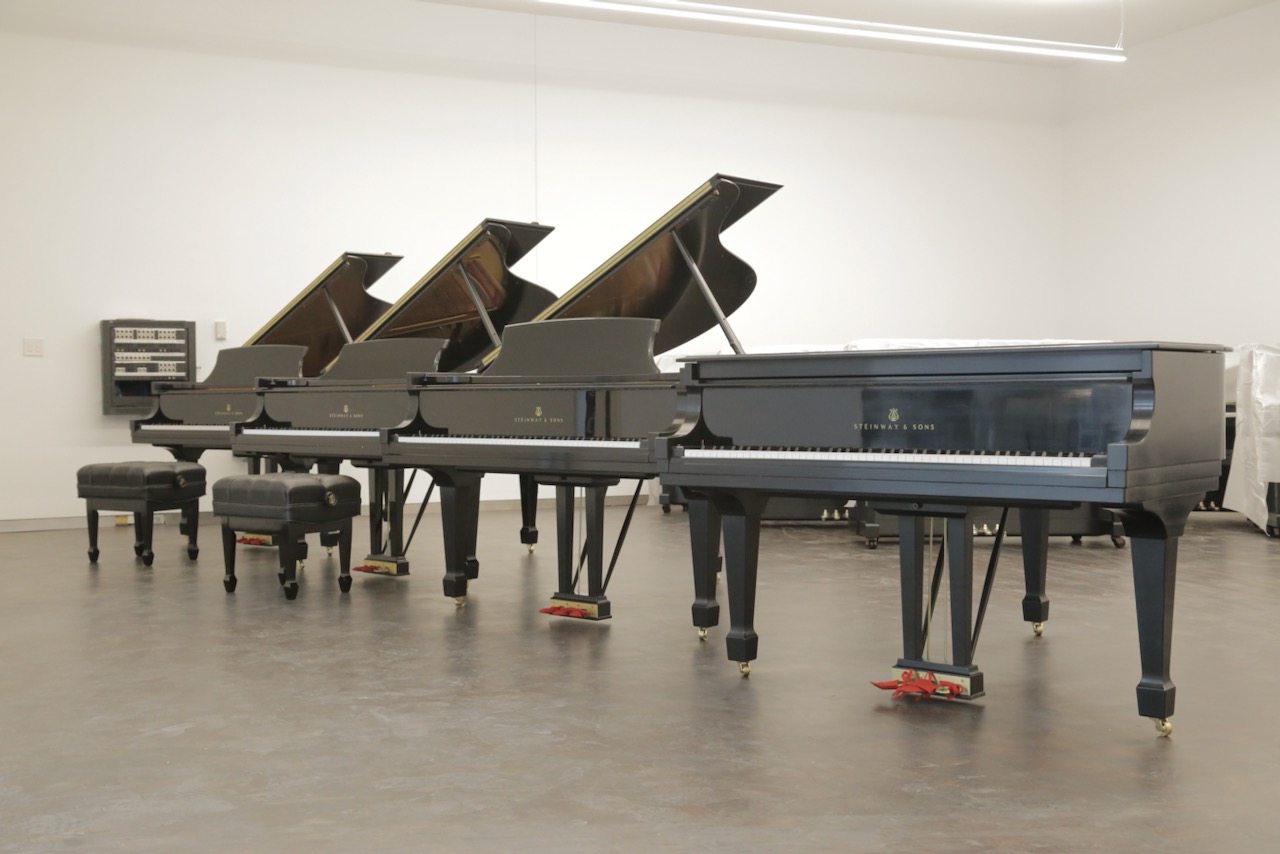by Nick Barberio, Office of Communications
Now on Princeton University’s homepage, an article and video story on the acquisition of 48 brand-new Steinway pianos for the Effron Music Building at the Lewis Center for the Arts complex.
Through a selection process spanning two years, dozens of new Steinway & Sons pianos have been purchased for the new Lewis Arts complex at Princeton University.
In June, Princeton graduate student Andrew Or and Nico Toy of the Class of 2018 traveled to the Steinway & Sons factory in Queens, New York, with music lecturers Margaret Kampmeier and Jennifer Tao to select the last of 48 new pianos that have been purchased for the University’s new Lewis Arts complex.
Henry Valoris, production manager for the Department of Music at Princeton, said the task of buying so many pianos — the largest piano purchase for Princeton in recent history — began in 2015, with trips to the Steinway factory and to their representatives at Jacobs Music in Philadelphia and locally in Lawrenceville.
“Over the course of two years, we probably played over 200 pianos to select the 48 pianos,” Valoris said.
On the tour of the Steinway & Sons factory, among the clatter of tools and compressed air sounds, the students and faculty could see the entire process of piano-making, from raw materials to the finished product.
“I thought it was interesting how much of the process is entirely handmade versus put into machines,” Or said.
The process for building grand pianos begins with the frame. Layers of conditioned wood are glued together in one continuous length and are bent into the iconic piano shape. The process from start to finish takes about a year, and about five finished pianos emerge per day.
To select pianos, the faculty and students played each piano in two acoustically different rooms at the factory and were listening for which piano had the best sound for its intended use.
“The qualities that we are looking for would be the pianos that have a wide range of expression,” Tao said.
The pianos selected by Tao and others are now dispersed throughout the Lewis Arts complex. The Effron Music Building adds 20 new practice rooms and six new teaching studios, complementing the department’s facilities in the Woolworth Center of Musical Studies. In addition, the building offers new faculty and staff office space and direct access to Lewis Center for the Arts colleagues from the other disciplines, such as dance and theater, who are also in the three-building complex. The structures are joined together on the lower level via the 8,000-square-foot community space called the Forum. This proximity allows for new opportunities for collaboration.
“We are here all in the same complex,” said Michael Pratt, director of the Program in Musical Performance and conductor of the Princeton University Orchestra. “We belong together and we can communicate with each other.”

